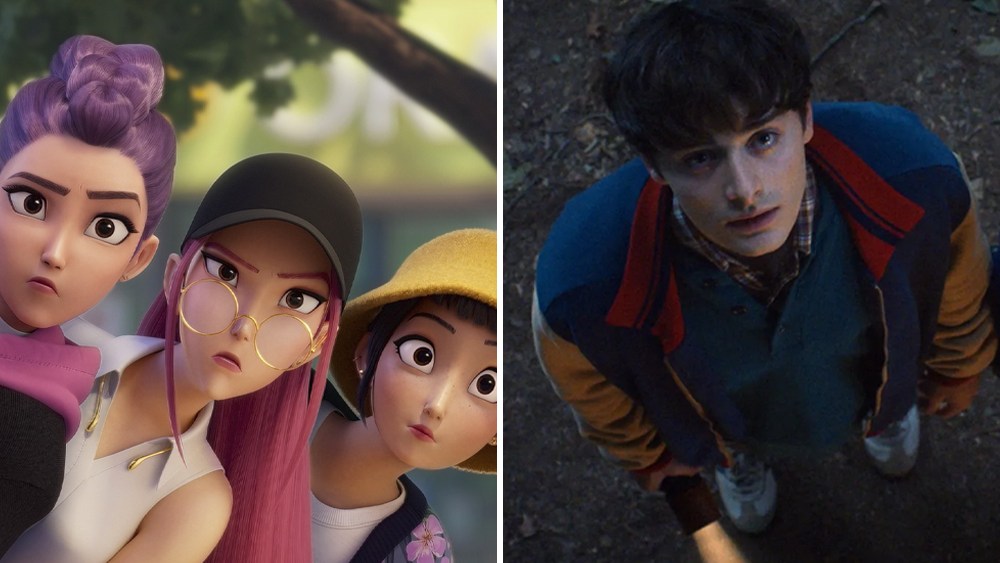After years of what seemed like an unshakeable divide, Netflix and AMC Theatres are showing signs of a budding partnership. This collaboration arrives with AMC agreeing to showcase “KPop Demon Hunters” in 300 of its venues, coinciding with Netflix’s Halloween re-release of the animated musical sensation. This marks a significant shift, considering AMC’s typical reluctance to screen Netflix films due to disagreements over theatrical exclusivity windows.
This unexpected alliance could redefine how streaming services and traditional cinemas coexist, especially as both entities seek avenues to boost revenue and audience engagement. Key to this new strategy is Netflix’s apparent move to see theatrical releases as promotional tools, rather than primarily profit-generating ventures. The alliance promises to bring benefits to both companies, offering diverse content to moviegoers and broadening the reach of Netflix’s major titles.
Let’s delve into the implications of this partnership and explore how it may shape the future of film distribution and viewing habits.
Netflix and AMC: Burying the Hatchet
Is this the end of the cold war between streaming giants and cinema chains? After a long period of disagreement over release windows, the collaboration between Netflix and AMC Theatres signals a potential thaw. AMC’s decision to screen “KPop Demon Hunters” in 300 locations marks a notable shift. Previously, AMC has largely avoided scheduling Netflix films due to the streaming service’s shorter theatrical release windows.
Analyst Alicia Reese from Wedbush Securities points out that Netflix’s interest in theatrical releases has evolved beyond awards considerations and talent appeasement. The focus has shifted towards maximizing reach, and as cinema attendance figures continue to recover, the partnership makes business sense. With box office revenues still lagging behind pre-pandemic levels, collaborations can provide a much-needed boost.
“KPop Demon Hunters”: A Crowd-Pleaser
Why would AMC, or any theater chain, turn down a potential blockbuster? “KPop Demon Hunters,” Netflix’s animated musical, previously found success in cinemas, earning roughly $18 million. This performance likely played a significant role in AMC’s decision to reconsider its stance on Netflix releases.
For years, AMC has been hesitant to fully engage with Netflix, despite needing more content for its screens. While Rian Johnson’s “Glass Onion” did play at AMC, it was an exception rather than the rule. Recent statements from AMC indicate a more open-minded approach, acknowledging potential mutually beneficial opportunities.
“Stranger Things” Finale on the Big Screen
The collaboration extends beyond “KPop Demon Hunters,” with the two-hour “Stranger Things” finale also set to debut in AMC theaters. This simultaneous release in theaters and on the streaming platform is a novel approach, potentially drawing both dedicated fans and casual viewers to experience the finale on the big screen.
This strategy underscores Netflix’s changing perspective, which some insiders attribute to a recognition of the cultural impact of theatrical releases. By using cinemas as marketing tools to amplify interest in their platform, Netflix can energize fandoms and drive subscriptions.
Marketing Stunt or Sustainable Strategy?
Unlike traditional studios that rely on multiplexes for financial returns, Netflix appears to view theatrical releases as marketing initiatives. By partnering with AMC, Netflix aims to expand the reach of its content and enhance its brand visibility. This strategy offers additional revenue streams for AMC during traditionally slower periods.
The success of these ventures may pave the way for future collaborations, with discussions already underway for the release of Greta Gerwig’s “Narnia” adaptation and David Fincher’s “Adventures of Cliff Booth.” However, not all Netflix projects will receive the big-screen treatment, as evidenced by the limited release planned for “Wake Up Dead Man: A Knives Out Mystery.”
Netflix’s Selective Theatrical Releases
Despite these partnerships, Netflix CEO Ted Sarandos maintains that their primary strategy is to offer exclusive first-run movies on Netflix. This suggests that the streaming giant will remain selective in its theatrical releases, focusing on properties with significant fan bases and promotional potential.
Exhibitors, therefore, don’t anticipate a complete embrace of theatrical releases akin to Amazon MGM. Instead, Netflix will likely continue to use cinemas strategically for specific titles, ensuring they don’t overshadow traditional studio releases.
Favorable Terms for Exhibitors
To encourage participation, Netflix offers favorable terms to exhibitors, including greater flexibility in scheduling and fewer restrictions compared to traditional studio releases. This approach reflects Netflix’s willingness to experiment and adapt its strategies to maximize impact.
Ultimately, Hollywood studios are cautiously optimistic about Netflix’s growing interest in theatrical releases, provided that the streaming service doesn’t encroach on their established territories and release schedules.
Conclusion
The partnership between Netflix and AMC Theatres signifies a potential shift in the dynamics between streaming services and traditional cinemas. While Netflix may not fully embrace theatrical releases across its entire catalog, its strategic collaborations with AMC indicate a recognition of the value of big-screen experiences for select properties. This approach could drive audience engagement and provide additional revenue streams for both companies.
As the entertainment industry continues to evolve, such partnerships may become increasingly common, blurring the lines between streaming and theatrical distribution. The key will be finding a balance that benefits all stakeholders, from content creators to exhibitors and, most importantly, the audience.

Leave a Reply